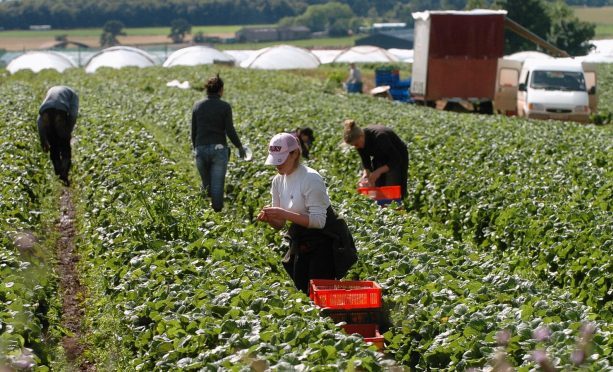There is no doubt that farming has become very reliant on non-UK labour, mostly from Eastern Europe.
Speaking at a rural law and finance event at Forfar Mart, Jamie Kerr – immigration partner with legal firm Thorntons – estimated that around 22,500 EU migrants worked on Scottish farms throughout the year. This is not counting the larger numbers working in further food processing.
Mr Kerr, who is one of few accredited immigration law specialists in Scotland, thought the total number of EU migrants in Scotland was around 115,000. For those who want to stay there are a few steps they can take to give then some security.
A certificate of permanent residence was the more onerous of the two types and was only available for those who have already been in the UK for five years or more. A simpler process at a cost of £65 could see the issue of a registration card for those who have been in the country for a shorter period.
Mr Kerr advised farmers in the audience to encourage non-UK workers in their employment to apply as soon a possible. A registration card, not unlike a new style driving licence card in appearance, could be very important.
“Apart from anything else how are you as an employer to know who you can take on legally in the future unless they have a card?” he asked.
The meeting also heard of changes afoot in the tax world.
Karen Wilson, business advisory manager with accountants Johnston Carmichael said there was no doubt that the traditional tax return would soon be a thing of the past. Digital recording of information on a quarterly basis was to be phased.
She said: “This will be the usual mix of good news and bad news. The good news is that everyone will have up to date information at their disposal. They should also have a rough idea of tax bills at an earlier stage and for some it will lead it a simpler system.
“The bad news is that you will need to update to suitable on-line packages. Poor connectivity could be a problem in some rural areas. There might also be problems for farming with making quarterly returns die to the seasonality in cash flow.”
Most VAT rated farm business could need to comply from April 2019 with limited companies following a year later, she added.
